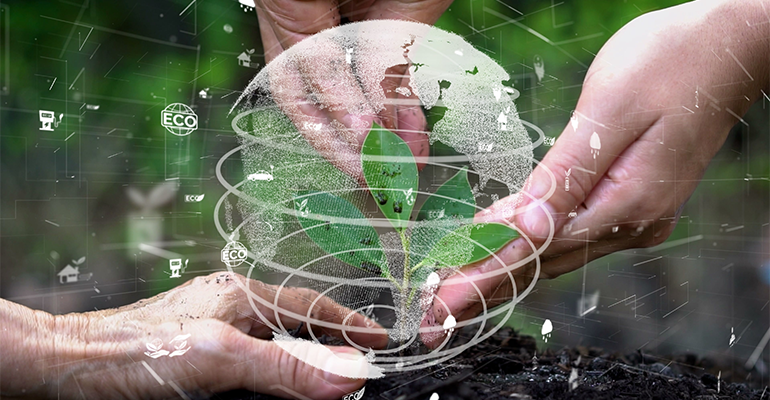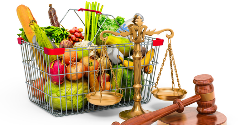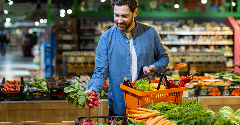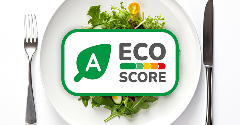News
Soil sequestration: An emerging opportunity for farmers and food producers
15 Jun 2022
Sequestration of carbon into soil has almost the same potential to reduce greenhouse gas (GHG) emissions as the use of wind or solar power and provides farmers with an opportunity equal to that of reforestation strategies, according to Berry Marttin of Rabobank.
Speaking at the recent F&A Next conference in Wageningen, the Netherlands, Marttin told delegates that the most recent United Nations IPCC report provides some “very interesting” reading for the food supply chain as it is the first time that the report recognised carbon sequestration via soil.

“They said that, actually, the opportunity for sequestration of carbon by farmers is almost as big as wind. Almost as big as solar,” he noted. “It's very important so that we start thinking about this huge opportunity.”
Recognising the carbon sequestration potential of farms
However, Marttin noted that despite appearing in the most recent IPCC report, the guidelines on Scope 1, 2, and 3 emissions of the current GHG Protocol don't mention sequestration of carbon from land, which is causing an issue for companies looking to reduce emissions and hit net zero through soil sequestration.
“It's just not there,” he said. “If you have a bank right now, like us [at Rabobank], and you talk about your finance emissions, we cannot net for this.”
“Something is very wrong here,” he warned.
However, Marttin predicted that the current paradoxical situation will change in the future, and that as a result banks, investors, and farmers will begin to think “not just about the food production value of farmland, but also the sequestration potential of that farm”.
UK supermarkets are leading the way
He noted that while most major retailers and supermarket chains have begun to make commitments against Scope 1 and Scope 2 emissions, looking at the value chain and Scope 3 emissions will be the next major challenge.
“Your Scope 1 and 2 actually don’t matter,” he said. “The real thing is, 97% of all emissions is actually Scope 3.”
“As a supermarket, to say you are going to be carbon neutral on Scope 1 and 2, actually it is not really relevant,” he said. “The question is, what are you going to do with your value chain? How are you going to turn around and say, ‘Value chain, I need to go carbon neutral’?”
Marttin cited commitments being made by UK supermarkets as leading the way in this area, noting that 75% have already made commitments to reducing Scope 3 emissions. He added that when it comes to Scope 3 emissions, 70% of the emissions are coming from ‘before the farm gate’.
“So, where are they going to look at? Who has to deliver?” he questioned. “It's really farming.”
Farmers need financial incentives to change
The Rabobank board member said the major opportunity to truly decarbonize the food supply chain will only ever happen if solutions are found to get farmers moving towards decarbonization and carbon sequestration.
However, he noted that farmers see no value or gain in moving towards these solutions.
“When do you move?” he questioned. “When you make money.”
“Why should I move if I get nothing for it?” he said. “Why should I invest now, if I'm not going to get any money for that? My neighbour doesn't invest, and then is going to have a bigger cash flow than I have.”
‘A huge opportunity’: Exploring the potential of carbon farming
He suggested that farmers will begin to explore the potential of ‘carbon farming’ as the pressure to decarbonise the economy continues to grow, and as the price of ‘carbon’ goes up.
Indeed, with a current price of around $25 USD per tonne of carbon captured, and the potential for capturing up to two tonnes of carbon per hectare per year, there is an opportunity for farmers to begin to explore soil sequestration.
“You have an opportunity of extra cash flow on the piece of land,” said Marttin. “If carbon is going to go to $200 or $300 [per tonne], which many of us expect, then imagine the beautiful cash flow.”
“This is where it's going to happen,” he said. “It's a huge opportunity.”
Related news

UK Government overhauls childhood obesity strategy
21 Nov 2025
The UK Government has announced a new package of measures designed to reverse the nation’s childhood obesity epidemic following the release of statistics revealing the scale of the crisis.
Read more
How younger consumers are redefining ingredient choices and rejecting brand loyalty
18 Nov 2025
Gen Z and millennial consumers’ preferences for transparency, functionality, and purpose are “redefining the very nature of consumption itself”, says SPINS.
Read more
New UPF standard hoped to offer consumers ‘coherence and clarity’
10 Nov 2025
Ingredients companies are being urged to enter “a new era of partnership and innovation” following the launch of the industry’s first non-UPF verification scheme.
Read more
Ingredient quantities mislabelled on popular protein bars, independent tests show
5 Nov 2025
Some popular protein bars contain more fat, carbs, and/or sugars than claimed on their labels, independent nutrition testing reveals.
Read more
Does promoting protein content push up plant-based sales?
27 Oct 2025
Promoting the protein content of meat-free products is a more effective sales strategy than adding carbon labels, a study of UK bakery chain Greggs suggests.
Read more
Supplement shoppers seek storytelling and science-backed suppliers
17 Oct 2025
Supplement consumers want specific health benefits that focus on prevention and personalisation, according to data from HealthFocus International.
Read more
Food fraud risks rise as brands fight economic and environmental headwinds
10 Oct 2025
Climate change, geopolitics, regulations, and demand for sustainable products are pushing up food fraud and adulteration risks, warns a world-leading food fraud expert.
Read more
The growing appeal of nutrient-dense food claims
2 Oct 2025
Nutrient-dense claims are rising as consumers reject the “empty calories” of UPFs in favour of products that provide meaningful nutrition with every calorie, Mintel data shows.
Read more
What does MAHA mean for the US nutraceutical industry?
30 Sep 2025
Industry associations have expressed mixed reactions to new policy directions on health and nutrition under the Make America Health Again (MAHA) banner.
Read more
Eco-Score labels improve consumer identification of sustainable foods
22 Sep 2025
The presence of a front-of-pack Eco-Score label improves consumers' accuracy in identifying sustainable food products from 52% to 72%, a study suggests.
Read more